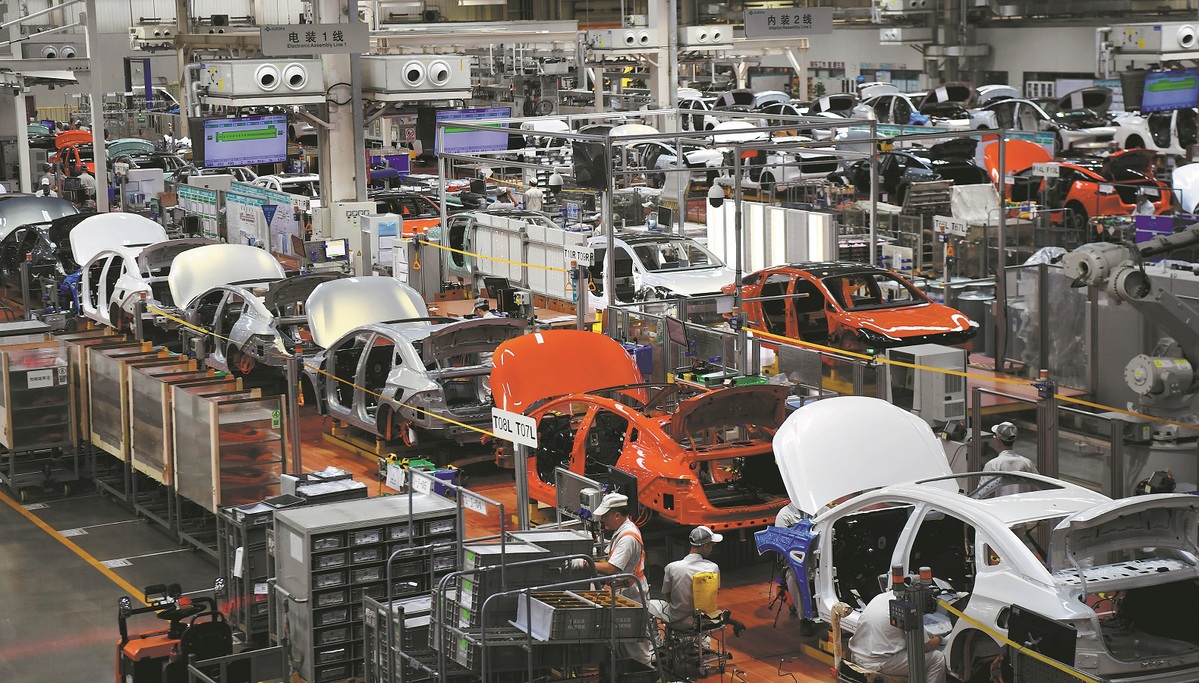
China’s driverless vehicles taking fast lane to success
BEIJING, China Mar 29 – Salesman Wu Keli is considering trading his gasoline car for a smart electric vehicle at the urging of his wife, Zhang Qing, who was recently given a ride by her friend in an Aito M7, a model codeveloped by the Chinese technology giant Huawei and carmaker Seres.
“My wife said our 2017 vehicle is nothing but a product of a previous era. She is impressed by all the flashy features in the M7, from voice command to automatic parking,” said Wu, 35, who is from Beijing.
Despite initial resistance, Wu has taken to the “electric gadgets” after several test drives of models from car manufacturers such as Nio, Xpeng, Zeekr and Aito. “You can’t resist the new-generation products. They can respond to your orders. In some scenarios, they can drive themselves. They are more than a car,” he said.
Wu and his wife are not alone. A survey of 2,499 potential car buyers in late 2023 by the consulting company McKinsey showed that 77 percent of the respondents were interested in buying a vehicle with automatic parking.
In the same survey, 76 percent said they would like a car that can drive autonomously on expressways, and 64 percent agreed that it is important for a vehicle to be able to navigate independently in urban traffic.
In 2023, a total of 14.65 million new energy vehicles, including electric ones and plug-in hybrids, were sold globally, of which 9.5 million were bought in China, according to the China Association of Automobile Manufacturers.
“It is possible to introduce some basic driving-assist functions into gasoline vehicles, but electric vehicles have their natural advantages in terms of precise control,” Ouyang Minggao, an academician at the Chinese Academy of Sciences, said at an industry forum in March.
Nearly 40 percent of new energy vehicles sold in China in the first half of 2023 had advanced driving-assist features, and they were standard in most priced from 160,000 yuan ($22,231), China Passenger Car Association statistics show.
In contrast, only 18 percent of gasoline vehicles had such features, and the figure was 20 percent for those priced at 160,000 yuan.
The growth in advanced vehicle features has improved technology and cut costs, which in turn has spurred further development in the sector.
Industrial Securities auto analysts said in a report that the cost of hardware required for autonomous driving on expressways is 25,000 to 30,000 yuan. The priciest component is the lidar (light detecting and ranging) unit, which uses laser light to measure distances and map surroundings.
However, with the emphasis on visualization technologies, “the number of high-cost items may be cut, resulting in a drop in costs by up to 50 percent,” the report said.
For more visit China Daily
For subscriptions on news from China Daily, or inquiries, please contact China Daily Africa Ltd on +254 733 566 499 or write to enquiries@chinadailyafrica.com
